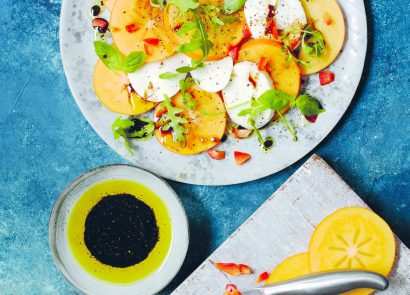Between chia seeds and chips, we all know which is the socalled superfood. We might even be able to list some – almonds, blueberries, cacau… Ok, we’re showing off, but how many of us really know what the term actually means?
Very healthy? Extremely nutritious? Low in calories? Well, that’s a start. But if you struggle to get any further, don’t worry, that’s understandable. The fact is, there is no official definition, nor is there any definitive list.
The word ‘superfood’ entered the language in the 1990s and it’s now in common use. Lovisa Nilsson is a nutritionist at Lifesum (lifesum.com). She explains, “a superfood is generally considered to be a nutrient-rich food that is particularly beneficial for health and for wellbeing.”
“The ‘superfood’ title is usually a marketing term,” she says. “The terminology unapologetically suggests that certain food items are indeed superior in nutrient and health value to others. Consumers do not always have time to research the nutritional value of their food and therefore rely on buzzwords like ‘superfood’ when shopping.”
“But there is truth to claims that superfoods have proven health benefits, often evidenced by medical research – superfoods tend to include phytonutrients which can slow the ageing process and prevent diseases such as cancer, heart disease, memory loss and obesity.”
But as Lovisa points out, “animal-based evidence is not considered the highest grade of proof when applied to human circumstances. It is unrealistic for humans to eat the same proportion of lingonberries as the mice were given in this study.”
Nevertheless, the benefits of lingonberries, including their richness in a notable range of essential vitamins such as A, B and C and minerals such as magnesium and calcium, have been proven in human tests as well.
“In humans, lingonberries do not completely halt the effects of a high-fat diet,” Lovisa says, “but they do aid digestion and regulate metabolism and blood pressure, by boosting the levels of the good cholesterol, HDL.”
One thing’s for sure and it’s that designating something as a superfood has a big effect.
Sales of quinoa soared after claims it was one of the best sources of protein in the plant kingdom. And if we’re all eating more of ‘the gold of the Incas’, that’s a good thing, right? Fact or fiction?
Some superfoods are exotic, such as goji, maca and spirulina. Others are familiar, such as oily fish like salmon. Recent additions to the list include lingonberries – a recent study carried out by Sweden’s Lund University found that, when tested on mice, lingonberries almost completely prevent an increase in weight.
Not necessarily, say nutritionists. There’s concern that too much focus on individual foods may encourage unhealthy eating. No single food, even one labelled ‘super’, can compensate for unhealthy eating.
“A fixation on this kind of extreme healthy eating can lead to an eating disorder called Orthorexia, where one becomes obsessed with the purity of food and attempts to maintain a restricted rather than balanced diet,” explains Lovisa. “One reason for an increase in this condition is the media messages surrounding health foods.”
Dietitians prefer to talk of ‘super diets’ where the emphasis is on a healthy, balanced diet. “Try to see your food choices as a pyramid,” Lovisa advises. “Your main focus should be to build the base by getting enough food to meet your daily calorie intake and nutritional requirements. The body needs carbs, protein, vitamins and minerals in order to function effectively.
Superfoods should complement rather than replace these essential nutrients.” So should we be eating superfoods? Absolutely we should, says Lovisa. Eating them, enjoying them, but as part of a healthy, balanced diet.



















